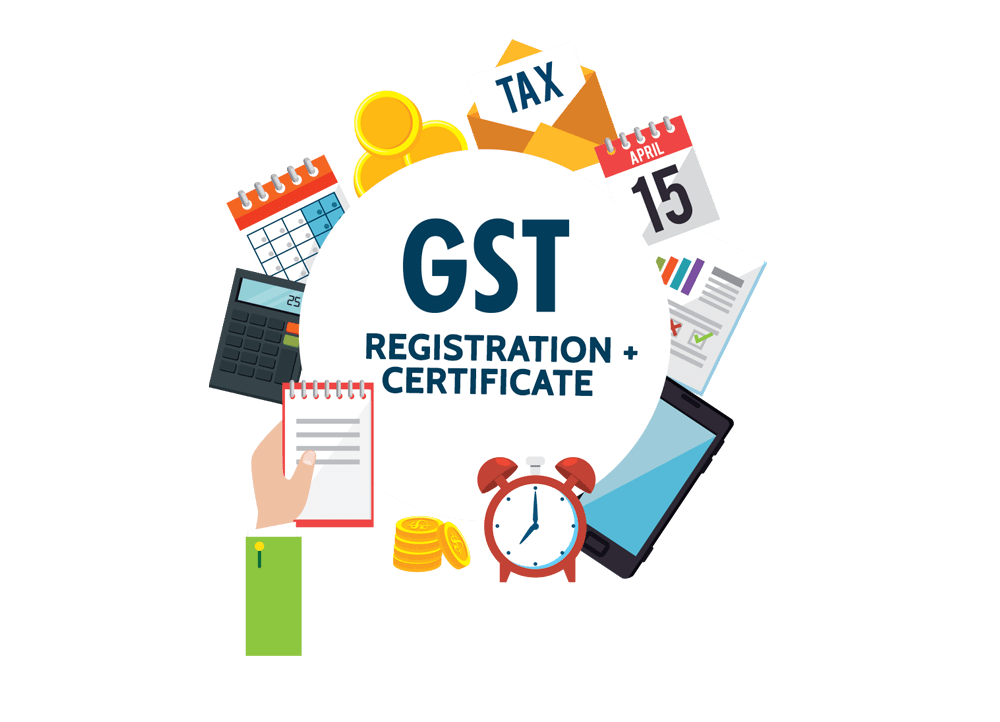Why Services Favor the most effective GST Registration Services in Singapore
Why Services Favor the most effective GST Registration Services in Singapore
Blog Article
From Beginning to Complete: The Ultimate Roadmap to GST Registration for Organizations Seeking Financial Security
Navigating the complexities of Item and Services Tax Obligation (GST) enrollment is a vital step for services making every effort for economic security. Damaging down the roadmap into manageable actions can streamline the enrollment trip for organizations looking to boost their economic standing.
Comprehending GST Basics
Delving into the basic concepts of Goods and Services Tax (GST) is important for gaining a detailed understanding of its implications on companies and the economic situation. Input Tax Obligation Credit (ITC) is a significant function of GST, enabling businesses to declare credit for taxes paid on inputs, minimizing the general tax obligation burden. Comprehending the fundamentals of GST is crucial for services to conform with tax obligation guidelines, handle their finances effectively, and contribute to the country's economic growth by getting involved in a transparent tax obligation system.
Eligibility Standards for Registration
To register for GST, companies should fulfill particular eligibility criteria established by the government. The main eligibility requirement is that any service associated with the supply of items or solutions with a yearly aggregate turn over over the threshold limitation set by the authorities need to register for GST. Since the current regulations, the threshold limit for GST registration is an annual accumulation turn over of 40 lakhs for organizations running within a state, besides unique classification states where the limit is 20 lakhs. Additionally, particular companies are required to sign up for GST irrespective of their turnover, such as interstate vendors, laid-back taxable persons, and services responsible to pay tax under the reverse cost system. It is vital for companies to thoroughly analyze their turnover and transaction kinds to identify their GST registration commitments properly. Failure to sign up for GST when eligible can cause penalties and legal consequences, making it important for organizations to adhere to the specified eligibility standards.
Documents Required for Enrollment
Having satisfied the eligibility standards for GST registration, companies must currently guarantee they have the requisite documents in location to proceed with the registration procedure efficiently. The records required for GST registration usually include proof of company constitution, such as collaboration action, enrollment certificate, or consolidation certificate for various kinds of services. Furthermore, services need to offer files establishing the primary place of organization, such as a rental arrangement or electrical energy costs.
Step-by-Step Enrollment Refine
Commencing the GST registration process entails a collection of organized steps to guarantee a certified and smooth enrollment for services. The primary step is to visit the GST website and submit the enrollment type with precise information of business entity. Following this, the applicant receives a Short-lived Recommendation Number (TRN) which is utilized to resume the application process if it's not completed in one go.
Next, all needed documents as per the checklist provided by the GST portal need to be submitted. These papers generally include evidence of service registration, identification and address proofs find out this here of marketers, monetary statements, and business entity's frying pan card.

Post-Registration Compliance Guidelines

Verdict
In verdict, businesses seeking economic stability should comprehend the fundamentals of GST, satisfy qualification requirements, gather necessary documents, adhere to the detailed enrollment procedure, and comply with post-registration standards - Best GST registration services in Singapore. By adhering to these actions, services can make sure compliance with tax obligation regulations and maintain economic stability in the long run
In addition, specific businesses Resources are required to sign up for GST regardless of their turnover, such as interstate distributors, laid-back taxable individuals, and services liable to pay tax obligation under the reverse fee mechanism.Having actually satisfied the qualification requirements for GST enrollment, organizations need to now ensure they have the requisite records in area to continue with the registration procedure effectively. The records needed for GST enrollment normally include evidence of business constitution, such as partnership deed, registration certification, or consolidation certification for various kinds of businesses. Furthermore, businesses require to give files developing the principal place of company, such as a rental arrangement or electricity expense.Starting the GST registration process involves a collection of organized steps to guarantee a smooth and certified registration for services.
Report this page